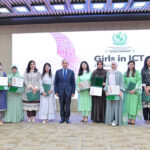ISLAMABAD, Jun 16 (APP): Minister for National Food Security and Research Syed Fakhar Imam on Wednesday said that despite financial constrains during the Covid-19 pandemic, Pakistan has provided a relief package of $8 billion to under privileged segments of the society to provide them social safety cover.
Addressed the 42nd Conference of the Food and Agriculture Organization (FAO) of the United Nations via Zoom, Imam said that the relief package was included emergency cash assistance to the poorest families and other vulnerable groups, including women and children.
Pakistan achieved this through Ehsaas Programme, which means compassion, fully utilizing digital technologies and data bases, he added.
The minister said that agriculture was central to the economy and social fabric of Pakistan, adding that it contributed 19.3 percent to GDP, employs 35 percent of the country’s labour force and contributed to the growth of other sectors of the economy.
He said that the healthy expansion of the agriculture sector stimulated domestic demand for the improved food products, industrial goods and supplies raw materials to agro-based industries, adding that a more vibrant rural economy and increased food security would depend on the county’s effort to stimulate the agricultural sector.
Unfortunately, the COVID-19 pandemic is likely to worsen the situation and push more people into extreme poverty, he remarked.
In Pakistan, he said the prevalence of undernourishment in the total population is estimated around 21 percent on the national level with important disparities at provincial level, adding that this high prevalence of undernourishment was more than a public health issue and was a serious barrier to Pakistan’s economic development.
It is estimated that under nutrition reduces Pakistan’s GDP by approximately 3 percent every year, approximately reducing GDP by US$ 3.7 billion, he said adding that addressing malnutrition in an holistic manner is therefore essential for the economic and social development of the people of Pakistan.
He apprised the forum that in response to the recession triggered by the COVID-19 crisis, the Prime Minister Imran Khan, proposed a “Global Initiative on Debt Relief” last April, adding that at the Special Session of the UN General Assembly,
the Prime Minister proposed several measures for generation of early financing to enable developing countries’ recovery from the COVID-19 crisis, including comprehensive debt relief and restructuring, creation of 500 billion dollars in SDRs and larger concessional financing; and measures to halt and recover illicit financial flows from developing countries to haven destinations and to richer countries.
Fakhar Imam said that Pakistan has planed some initiatives to end poverty and hunger like investing in green and sustainable agriculture infrastructure to shorten agriculture value chains, besides financing infrastructure including roads, food storage, localized energy grids and markets, which will greatly improve food systems and will assist with increasing food and nutrition security in Pakistan.
The government plans to work on areas of credit, capacity building of farmers and improving the access and availability of high–value crops and varieties, clubbed with agriculture value chain investment, which will help increase farmer’s incomes and empower the women in agricultural communities, he added.





